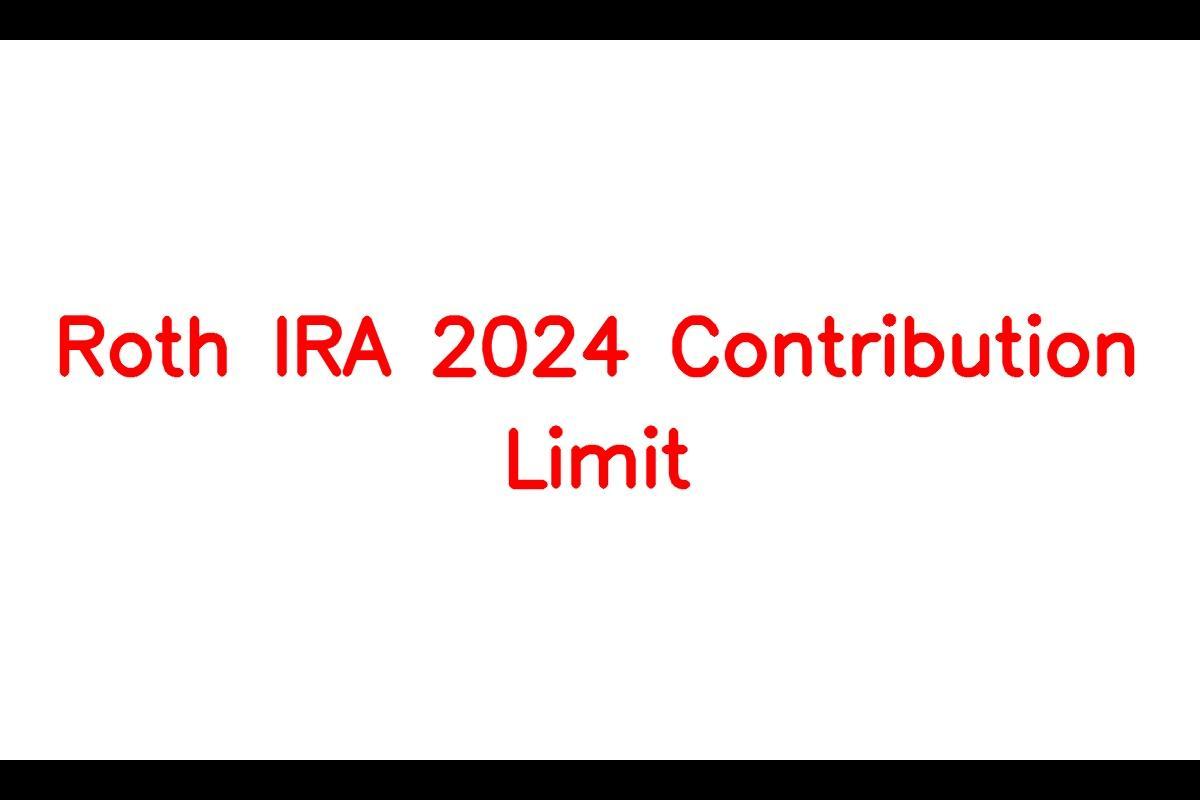Roth IRA 2024 Contribution Limit: IRS Rules, Income Limits, and Eligibility
Roth IRA 2024 Contribution Limit: IRS Rules, Income Limits, and Eligibility

News: For the year 2024, people of varying ages possess the chance to optimize their retirement funds by utilizing a Roth Investment Account (IRA). The maximum yearly contribution permitted for a Roth IRA in 2024 stands at $7,000 for individuals below the age of 50. Should you be 50 years old or above, an additional contribution of $1,000 is allowed, elevating the total annual contribution limit to $8,000. These limitations are applicable to both single filers and married individuals.
Income Thresholds for Roth IRA Contributions
To be eligible to contribute to a Roth IRA in 2024, your Modified Adjusted Gross Income (MAGI) must meet certain criteria. For individual tax filers, the MAGI must be under $153,000 for the 2023 tax year and $161,000 for the 2024 tax year. If you are filing jointly, the combined MAGI must be less than $228,000 for 2023 and $240,000 for 2024.
Here is a breakdown of the maximum contributions based on income for individuals under the age of 50:
- MAGI under $146,000: Maximum contribution of $7,000
- MAGI between $146,000 and $161,000: Partial contribution
- MAGI over $161,000: Contributions are not allowed
For individuals who are 50 years old or older, the maximum contributions based on income are as follows:
- MAGI under $146,000: Maximum contribution of $8,000
- MAGI between $146,000 and $161,000: Partial contribution
- MAGI over $161,000: Contributions are not allowed
Using Flipping Investments to Make Roth IRA Contributions
As of January 1, 2024, individuals might have the option to utilize 592 flipping investments to contribute to their Roth IRA, following the implementation of the Sure 2.0 Act.
Understanding Roth IRA Contribution Eligibility
When assessing your qualification for Roth IRA contributions, it’s crucial to factor in your Modified Adjusted Gross Income (MAGI). If your MAGI for 2024 falls under $146,000, you’re eligible to make the full contribution. Yet, if your MAGI surpasses $146,000 but remains below $161,000, you might qualify for a partial contribution. The specific amount you can contribute is determined by your taxable income after deductions.
Rules for Roth IRA Contributions
Contributions to a Roth IRA must adhere to specific regulations established by governing bodies to ensure compliance within defined limits. Should your income exceed these thresholds, you might not qualify for Roth IRA contributions. Moreover, if your annual income surpasses the threshold but stays below $153,000, you might still be eligible to make partial contributions. However, once your income exceeds the designated threshold, you’re barred from contributing to a Roth IRA.
Comprehending the Roth IRA’s 2024 contribution limits, IRS guidelines, income thresholds, eligibility criteria, and associated rules is vital for those aiming to optimize their retirement savings. Adhering to these limits and regulations empowers individuals to maximize their Roth IRA contributions, securing a stronger financial future. Seeking advice from a financial advisor or tax professional tailored to your unique financial circumstances is advisable for personalized guidance.
FAQs
1. Can I contribute more than $8,000 to a Roth IRA if I am over 50 years old?
No, the maximum annual contribution limit for individuals 50 years old or older is $8,000.
2. If my income exceeds the specified threshold, can I make any contributions to a Roth IRA?
No, if your income surpasses the specified threshold, you are prohibited from making any contributions to a Roth IRA.
3. How can I determine my eligibility for a partial contribution to a Roth IRA?
Your eligibility for a partial contribution is based on your Modified Adjusted Gross Income (MAGI). If your MAGI exceeds $146,000 but is below $161,000, you may be eligible for a partial contribution. The total amount you can contribute is based on your taxable income after deductions.
Note: All informations like net worths, obituary, web series release date, health & injury, relationship news & gaming or tech updates are collected using data drawn from public sources ( like social media platform , independent news agency ). When provided, we also incorporate private tips and feedback received from the celebrities ( if available ) or their representatives. While we work diligently to ensure that our article information and net worth numbers are as accurate as possible, unless otherwise indicated they are only estimates. We welcome all corrections and feedback using the button below.
Advertisement